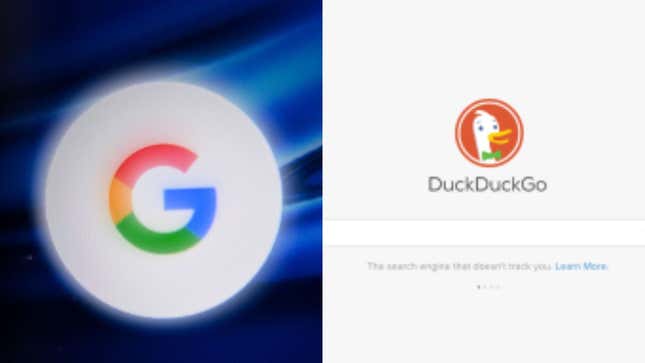
When Google first rolled out its Accelerated Mobile Page (or AMP) protocol back in 2015, the search company promised that the tech would bring faster surfing to handheld gadgets everywhere. That may be the case, but what has also become clear in the years since is that AMP has become less about speed and more about ceding more power and more user data to a data-guzzling behemoth.
“AMP technology is bad for privacy because it enables Google to track users even more (which is already a ton),” search engine DuckDuckGo tweeted out Tuesday.
It was only a matter of time before some major players in the tech space figured out a way to bypass it.
That’s exactly what we saw this week when the privacy pros at Brave and DuckDuckGo announced two separate initiatives meant to undercut the extra tracking that Google lobs onto AMP-enabled web pages. Brave’s new feature, called “De-AMP,” will be enabled “by default” in the desktop and Android versions of its namesake browser (with iOS functionality in the works), according to a company blog posted Tuesday afternoon. Not long after that post went up, DuckDuckGo took to Twitter to announce that all of its apps and extensions would protect against AMP tracking, too.
“Google uses AMP to further entrench its monopoly, forcing the technology on publishers by prioritizing AMP links in search and favoring Google ads on AMP pages,” DuckDuckGo tweeted.
In that respect, the company is absolutely correct. While there’s full diatribes against AMP that you can read elsewhere, what you need to know is that AMP-enabled pages are ones where Google controls 99% of the embedded analytics and advertising tech by design—which means when those pieces of software gobble your data, it’s going straight into Google’s hands. You’ve probably come across one of these sites when you try to open, say, a story on some cool news site, only to open a Google URL that’s hosting that story instead.
DuckDuckGo’s tweet didn’t go into the specifics of how it plans to circumvent that tech, though Gizmodo’s reached out for additional details. The company’s tweet simply stated that when a person loads a Google AMP-enabled page using a DuckDuckGo app or browser extension, “the original publisher’s webpage will be used in place of the Google AMP version.”
Brave, meanwhile, offered a clearer picture of how De-AMP is expected to work. “Where possible,” the company explained in its blog, the browser will “rewrite links and URLs,” to prevent users from landing on those Google-fied versions of pages altogether. When that’s not possible, the Brave browser will watch webpages for potential AMP-ified code rendering onsite—if that’s spotted, it will stop loading the current page, and redirect users to the “true” version of that site, all before the page is even fully rendered.
“An ethical Web must be a user-first web, where users are in control of their browsing, and are aware of who they are communicating with,” Brave wrote in its blog. Hopefully, this new update will make that a little bit easier.